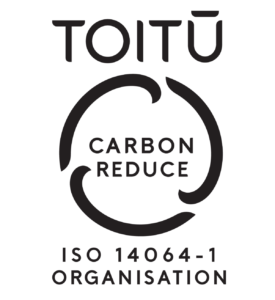PHI International New Zealand (subsidiary of global helicopter transportation services provider, PHI Aviation) has achieved Toitū Envirocare’s carbonreduce organisation certification. This certifies PHI’s actions to measure and manage its carbon footprint.
Managing Director of PHI Aviation, Keith Mullett, said the carbonreduce certification is one of many steps the organization is taking towards becoming a more sustainable business.
“When it comes to our operations, we know that reducing our greenhouse gas (GHG) emissions is where we can have the biggest impact.”
“At PHI Aviation we are currently establishing goals and targets for our entire global organization to become more sustainable. We hope to replicate the success established by working with Toitū in New Zealand across the rest of our business units.
“Having worked in the offshore energy industry for some time, it is our priority to be an efficient, responsible and sustainable partner in the global transition to more renewable resources,” says Keith.

PHI International New Zealand is the first offshore energy transport services organization in the country to receive the Toitū carbonreduce certification.
PHI’s New Plymouth Base Manager, Roger Duncan said that committing to a GHG measurement and reduction programme has been incredibly rewarding for the New Zealand based team.
“With the support of our primary customer OMV and help from Toitū, we have started our journey to offer our services in a more efficient and environmentally viable way. The certification by Toitū helps us to build customer confidence that we will remain a responsible partner for traditional and renewable energy industries.”
“Our goal in New Zealand is to reduce our use of non-sustainable Jet A1 fuel consumption by 10% per flight within the next ten years, to make similar reductions in business travel and electricity consumption, and to work towards carbon neutrality with the purchase of carbon credits,” says Roger.
Jet A1 fuel consumption is the top producer of GHG emissions for PHI’s New Zealand business, which is directly linked to flight activity. Jet A1 is currently a 100% fossil sourced fuel, however the global aviation industry is working to generate fuel from sustainable sources to use as a blend of biofuels. This fuel is known as Sustainable Aviation Fuel (SAF) and within New Zealand, PHI has joined a working group to explore how these fuels may be introduced into their business. SAF will not entirely replace fossil fuel-based Jet A1 for PHI, however as a blended biofuel, it is seen as a key part in future emission reductions.
To achieve Toitū carbonreduce organization certification, PHI had to measure all its New Zealand operational greenhouse gas (GHG) emissions required under the Toitū carbonreduce program and the international standard for carbon footprints, ISO 14064-1, including vehicles, business travel, fuel and electricity, and waste.
